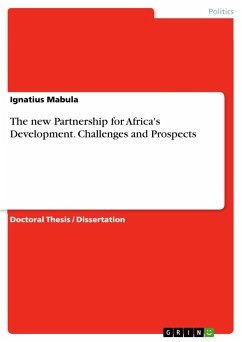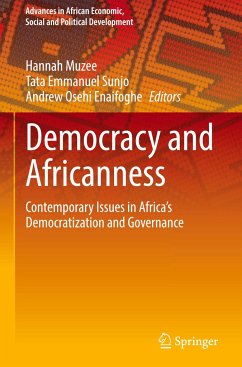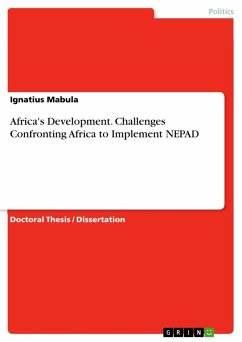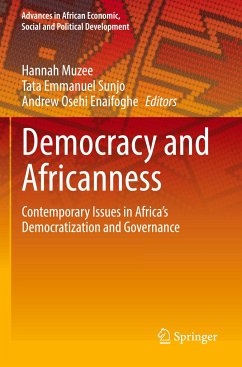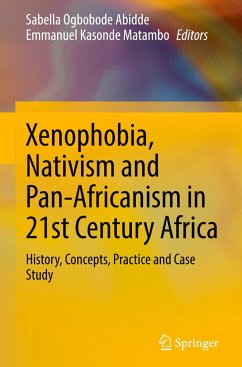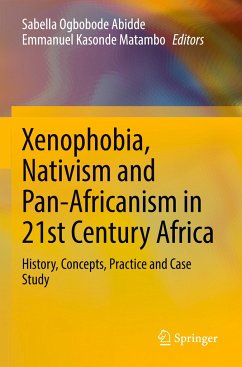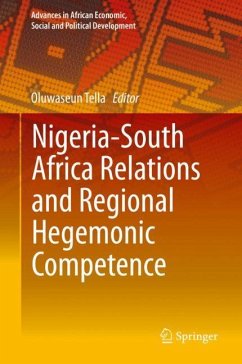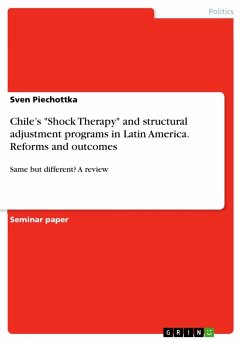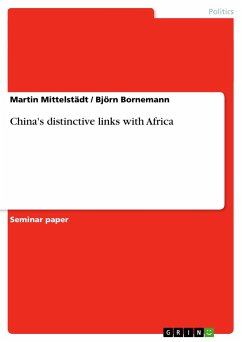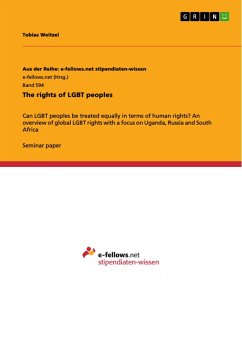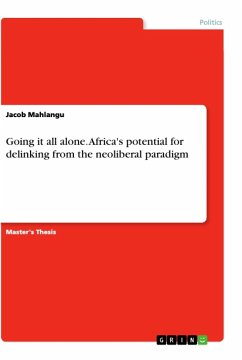
Going it all alone. Africa's potential for delinking from the neoliberal paradigm

PAYBACK Punkte
0 °P sammeln!
Master's Thesis from the year 2019 in the subject Politics - International Politics - Region: Africa, grade: 65, University of Pretoria, course: International Relations, language: English, abstract: Neoliberalism as a paradigm can be defined as the political economic framework of ideas of the current times which advocates for, privatization of state-owned enterprises, deregulation, "free markets" and supporting of political individualism. As members of the International Monetary Fund, the World Bank and the World Trade Organization, and due to their economic dependence on the Western world, de...
Master's Thesis from the year 2019 in the subject Politics - International Politics - Region: Africa, grade: 65, University of Pretoria, course: International Relations, language: English, abstract: Neoliberalism as a paradigm can be defined as the political economic framework of ideas of the current times which advocates for, privatization of state-owned enterprises, deregulation, "free markets" and supporting of political individualism. As members of the International Monetary Fund, the World Bank and the World Trade Organization, and due to their economic dependence on the Western world, developing countries have been obligated to implement the neoliberal paradigm within their domestic terrain. Most African peoples are poor, live in dire conditions and are unable to function in a neoliberal context, as they are excluded from economic participation in their countries, due to a lack of resources, income, and a lack of skills and qualifications to participate in the market or in the neoliberal model as a whole. The tendency of the neoliberal paradigm to extend its hand to non-market forces such as in the provisioning of education, has led to the education service being inaccessible to those who need it the most.The paper seeks to find ways in which the influence of the neoliberal paradigm could be minimised on a sectoral level, focusing on the education sector. This research paper utilizes the Qualitative research approach as it studies a complex phenomenon and concepts. It is a 'Desk-top study' which focuses on 'document analyses'. It is exploratory, and utilizes the case study design, to explore the education sector of two African countries, namely: South Africa and Rwanda. It explores international laws, conventions, government documents, reports, journals, articles and other documentation to examine the phenomenon. It seeks to determine the extent and success behind the phenomena of government intervention in the education sector of these two countries in their resistance of the influence of the neoliberal paradigm in their education sector, to determine the possibility of African countries in minimising the influence of the neoliberal paradigm on a sectoral level. It sources data from the internet, library and bookstores and its data types are: past and present literature, in particular: secondary data (books and journals) and other publications.The argument that the paper posits is that: although it may be impossible for the African continent to delink from the entire International Financial System; it is possible for the African continent to minimise the influence of the neoliberal paradigm on a sectoral level.




